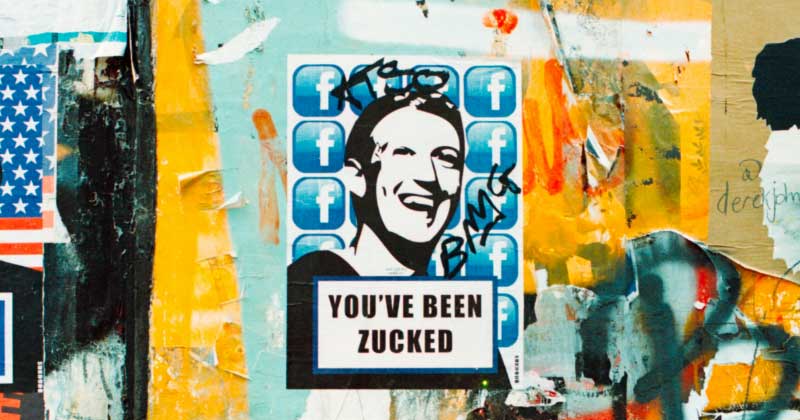
Facebook Advertising: The Power of Social Media
Here’s a truth that’s inescapable today: social media has revolutionized marketing and advertising practices in irrevocable ways. Phrases like digital advertising and viral marketing are now often present in any marketing boardroom meeting or teleconference, and many advertisers are taking crash courses on digital marketing strategies like pay-per-click ads and the like that a cottage industry for these kinds of training have sprung up globally.
One of the biggest platforms in which digital advertising has taken place is Facebook. Facebook originated as a website aimed at college crowds, and has since expanded its user base to close to 2 billion since its creation in February of 2004. Now considered a marketing battlefield to many, the platform offers organic and paid avenues for advertising that requires some understanding in order to fully utilize its potential.
So let’s talk about Facebook.
UNDERSTANDING FACEBOOK’S REACH
Facebook’s crowd is immense – it’s projected to reach 2 billion users within the next five years. Even if we discount the presence of dummy and inactive accounts, that still puts Facebook’s reach at over 1.5 billion.
As a marketing avenue, that’s a pretty hard deal to beat. Having a guaranteed audience of even 10% of that is a dream in traditional tri-media marketing, which makes Facebook advertising a big deal.
Facebook pages have become so vital to marketing today, given that it’s more common for a potential client to ask for a business’s Facebook page these days than it is to ask for an official website or phone number. You’d be hard-pressed to find a business that doesn’t have a Facebook page, as well – big corporations like Samsung maintain several Facebook pages, each one targeting regional audiences. Some businesses, like Starbucks, even have Facebook pages for individual stores located in high-density areas, to better reach their clients.
But why is there such a big push for businesses to have and maintain a page on the platform?
AUDIENCE INTERACTION IS KEY
With the advent of the internet being readily accessible in high-density cities, as well as its continuing expansion into rural areas, social media platforms like Facebook are creating a wave of consumers who have control over the media that they consume.
Many traditional marketing tactics don’t work on social media because of this; where tri-media marketing aims for marketing messages that are accessible to as many people as possible, social media marketing demands hyper-targeted marketing in order to reach the radar of a business’s target demographic.
This is important because social media users like those found on Facebook curate their experience extensively – just as users select who they allow or deny access to their Facebook profiles, they also only interact with content that interests them. A marketing strategy that aims itself at every man on social media will find itself, on the whole, mostly ignored.
BRAND AUTHENTICITY
Brand authenticity is now the name of the game for many businesses. For example, athletic apparel retailer Lululemon Athletica has tailored its brand identity to appeal to yoga practitioners and low-impact exercise enthusiasts – as well as the crowd that’s typically associated with them. Meanwhile, Under Armour, another athletic apparel retailer, curates its brand identity to appeal to the more serious athletic crowd, and their social media marketing reflects this.
The point to these examples is that it’s not enough anymore for companies to have a product – in the age of social media marketing, your products must also have an identity. Who is meant to use your products? What kind of people are they? What values do they have, and does the company support these values?
A business that doesn’t have answers to these kinds of questions will have a hard time marketing on Facebook, because their potential clients can directly interact with their marketing on the platform. Businesses can choose not to engage, of course, but this is considered the kiss of death for social media marketing – the point to advertising on platforms like Facebook is that your business is not just accessible, but that it’s also identifiable from the literal millions of other businesses attempting the same thing on the platform.
IN SUMMARY
Facebook’s proprietary algorithms will still dictate whether or not your organic advertisements are seen by your target audience. There are ways to game this system, of course, and more conventional means of advertising like paid ads are still available to those who’d prefer not to do the legwork involved in building an organic following.
However, at the end of the day, when your ad finally makes it to your target demographic’s Facebook feed, it’s still the individual user’s prerogative to view your video ad, read your ad copy, or click your link – and all of these actions will depend on whether or not your marketing has engaged the user on a personal level.
Before embarking on your Facebook marketing campaign, take a good long look at how your business approaches its advertising. Ask the questions posed in this article, and then dig deeper – search for your brand’s soul, if you will. As with any marketing strategy, you could pour all of your budget into Facebook and still not convert any sales if your strategy isn’t up to snuff, and a big contributing factor to failed campaigns is a lack of knowing who your brand is for.
Give your business its proverbial face, and you’ll find your niche on Facebook.
Did you like this article? Let us know in the comments!




